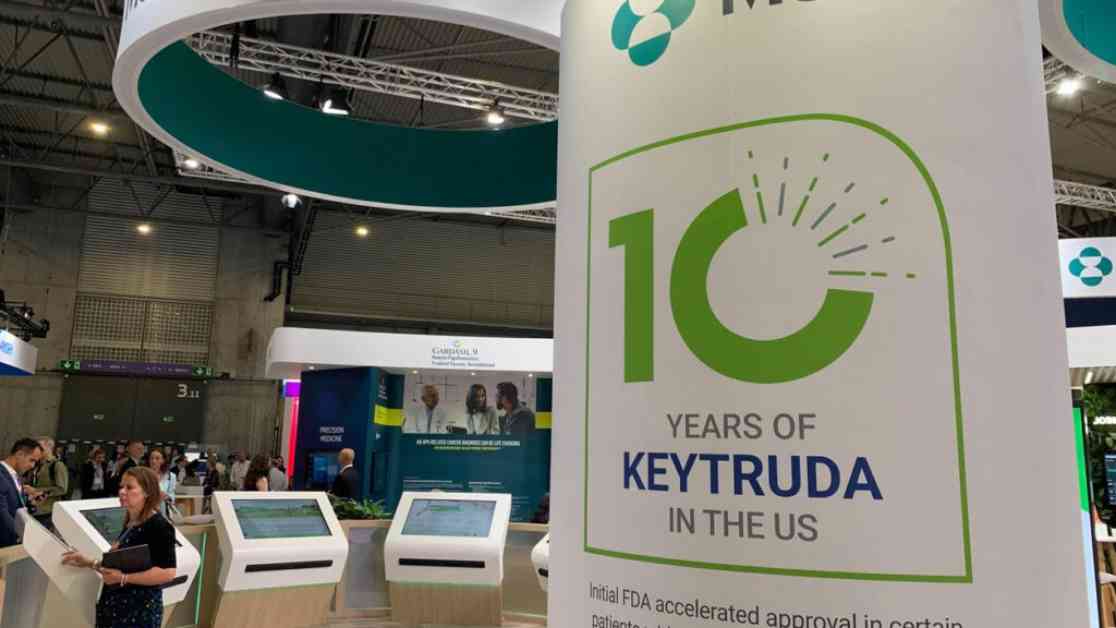Immunotherapy Milestone: A Decade of Progress
The European Society for Medical Oncology’s annual meeting in Barcelona, Spain, highlighted a significant milestone in the field of immunotherapy. Keytruda and Opdivo, two groundbreaking drugs, were approved for their first indications a decade ago. Reflecting on the impact of these drugs, researchers shared data from early trials showing that approximately 50% of patients with metastatic melanoma now have the potential to survive long term. This marks a substantial shift in cancer care, with immunotherapies continuing to demonstrate success in new indications. However, amidst the celebration of progress, experts also acknowledged the remaining challenges, such as tumor types that resist treatment and the need for tools to optimize drug usage.
AI Revolutionizing Oncology Care
During the ESMO conference, there was a prevalent focus on the rapid and profound impact of Artificial Intelligence (AI) on oncology. Researchers discussed the role of digital pathology and AI tools in refining diagnosis and guiding treatment decisions. Federica Di Nicolantonio from the University of Torino emphasized how AI is shaping the future of cancer care. However, the challenge lies in ensuring that regulators can keep pace with the evolving technology and that clinicians can effectively utilize these tools for patient care. Amy Abernethy, a former FDA official, highlighted the increasing number of AI algorithms being cleared for medical use and emphasized the importance of ensuring their reliability, performance, and long-term effectiveness.
Understanding Young-Onset Cancer Incidence
While ESMO primarily focused on clinical trials, one critical issue raised at the conference was the rise in cancer incidence among individuals under the age of 50. This trend presents a complex epidemiological challenge that likely involves multiple factors, including diet and environmental influences. Shuji Ogino, from Brigham and Women’s Hospital, highlighted the disconnect between pediatric and adult cancer research, emphasizing the need for collaboration to bridge the gap in understanding the causes of cancer in younger populations. By fostering collaboration between researchers across different specialties, a more comprehensive approach to addressing young-onset cancer can be achieved.
Organ Preservation in Cancer Treatment
In the final presidential session of the conference, researchers explored innovative approaches to cancer treatment, including the concept of organ preservation. By intensifying pre-surgery treatment regimens, a study on rectal cancer demonstrated promising results, with a quarter of patients achieving complete responses without the need for surgery. This approach not only improves patients’ quality of life by avoiding invasive procedures but also challenges the traditional paradigm of radical surgery in cancer care. The potential for immunotherapies and next-generation treatments to further enhance complete response rates without surgery presents a new frontier in oncology care, emphasizing the importance of personalized and compassionate treatment approaches.
Exact Sciences’ Breakthrough in Colon Cancer Detection
A notable development at ESMO was the presentation of early positive results in a blood-based test by Exact Sciences for detecting colon cancer. While the initial findings show promise in accurately identifying colon cancer, the study was small-scale and intended to refine the test’s algorithms and biomarkers. A larger study is currently underway to validate these results. The potential of Exact’s test as a competitive alternative to existing screening methods caught the attention of industry experts, sparking discussions on the future of blood-based cancer screening tests. Amidst the evolving landscape of cancer diagnostics, innovations like Exact Sciences’ test are paving the way for improved early detection and treatment strategies.
In conclusion, the European Society for Medical Oncology’s annual meeting showcased significant advancements and challenges in the field of cancer research and treatment. From the milestone achievements of immunotherapy to the transformative potential of AI in oncology care, the conference highlighted the ongoing evolution of cancer management strategies. By addressing critical issues such as young-onset cancer incidence and exploring innovative approaches like organ preservation, researchers are paving the way for a more personalized, effective, and compassionate approach to cancer care. As the landscape of oncology continues to evolve, collaborations, innovations, and a patient-centered focus will be key in driving progress towards improved outcomes for cancer patients worldwide.


















